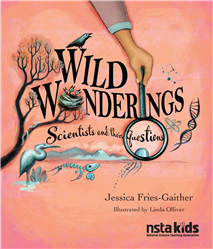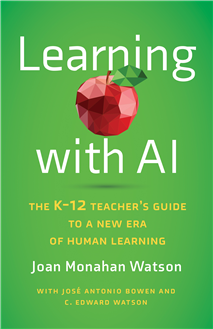All Interdisciplinary resources
Reports Article
Freebies and Opportunities for Science and STEM Teachers, February 25, 2025
By Debra Shapiro
Reports Article
Freebies and Opportunities for Science and STEM Teachers, February 4, 2025
By Debra Shapiro
Reports Article
Freebies and Opportunities for Science and STEM Teachers, February 11, 2025
By Debra Shapiro
Reports Article
Freebies and Opportunities for Science and STEM Teachers, January 28, 2025
By Debra Shapiro
Reports Article
Freebies and Opportunities for Science and STEM Teachers, January 14, 2025
By Debra Shapiro
Reports Article
Freebies and Opportunities for Science and STEM Teachers, January 7, 2025
By Debra Shapiro
Reports Article
Freebies and Opportunities for Science and STEM Teachers: December 10, 2024
By Debra Shapiro
NSTA Press Book
Wild Wonderings: Scientists and Their Questions
Click here to view video of Wild Wonderings Let your curiosity run wild! This lively book will inspire you to ask questions like scientists do. Why? Because questions can lead you to amazing discoveries. Like what? Like when theoretical physicist ...
By Jessica Fries-Gaither
NSTA Kids
Wild Wonderings: Scientists and Their Questions
Click here to view video of Wild Wonderings Let your curiosity run wild! This lively book will inspire you to ask questions like scientists do. Why? Because questions can lead you to amazing discoveries. Like what? Like when theoretical physicist ...
NSTA Press Book
Learning with AI: The K-12 Teacher’s Guide to a New Era of Human Learning
Unlock the Future of Education with "Learning with AI" Discover how artificial intelligence is transforming education with "Learning with AI," a pivotal co-publication from Johns Hopkins University Press and the National Science Teaching Assoc...
By Joan Monahan Watson
Reports Article
Freebies and Opportunities for Science and STEM Teachers, November 5, 2024
By Debra Shapiro
Journal Article
Establishing a Writing Center and Why Science Teachers Need to Be in On It
To support the development of scientific literacy and student confidence in expressing their ideas and receiving feedback, the first author established a writing center in a large urban fringe high school. Using the peer-assisted learning (PAL) model...
By Althea Roy, Brooke Whitworth
Journal Article
Career of the Month November/December 2024...
By Luba Vangelova
Journal Article
Fact or Faux? November/December 2024...
By Gábor Zemplén, DOUGLAS ALLCHIN
Journal Article
This paper describes the design and implementation of a human-centered multidisciplinary engineering course for high school students. The course was implemented and modified for both in-person and online modalities. Students worked in small groups an...
By Hoda Ehsan, Abeera Rehmat





